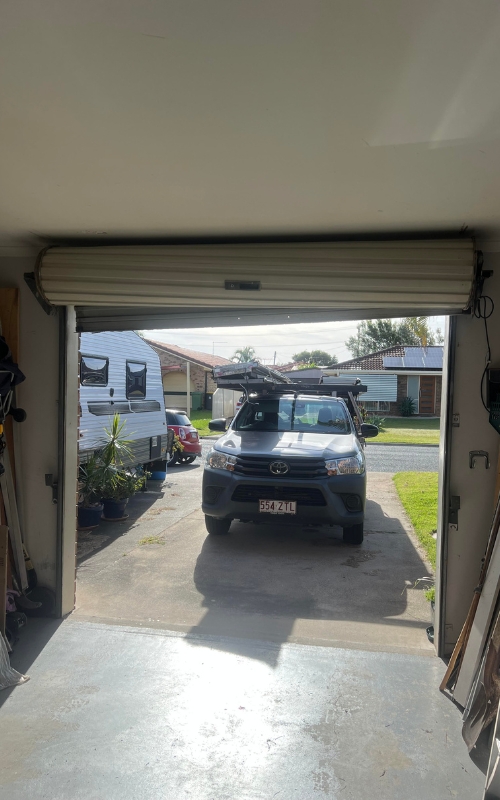Garage doors are a crucial garage door repair aspect of our homes, providing security and convenience. However, like any mechanical system, they can experience problems over time. One common issue homeowners face is damage to the garage door panels. This article will delve into Garage Door Panel Repair: When to DIY and When to Call a Professional, exploring various aspects of the repair process, maintenance tips, and when it’s best to seek professional help.
Understanding Garage Door Panels
What Are Garage Door Panels?
Garage door panels are the flat sections that make up the overall structure of your garage door. They come in various materials and styles, contributing not only to functionality but also to the aesthetic appeal of your home.
Types of Garage Door Panels
- Steel Panels: Durable and low-maintenance, steel panels can withstand harsh weather conditions. Wood Panels: Offers a classic look; however, they require regular maintenance to prevent rot. Aluminum Panels: Lightweight and resistant to rust but may dent easily. Vinyl Panels: Resistant to dents and rust but can fade over time.
Common Garage Door Panel Problems
Garage door panels often encounter issues such as:
- Dents from vehicle impacts Cracks due to temperature changes Warping from moisture exposure
Garage Door Maintenance Tips
Regular Inspections
Performing routine inspections can help you identify potential problems before they escalate. Check for signs of wear or damage in the panels.
Cleaning Your Garage Door
Keeping your garage door clean not only improves its appearance but can also extend its lifespan. Use mild soap and water for cleaning.
Lubrication
Regular lubrication of moving parts like tracks and rollers will reduce friction and wear on garage door panels.
Emergency Garage Repair Situations
When Is It an Emergency?
Certain situations warrant immediate attention:
- The garage door won’t open or close properly. You hear unusual noises during operation. The door has fallen off its tracks.
Identifying Emergency Issues
Be vigilant about identifying issues that could compromise your safety or property. If you notice any significant malfunctions, it’s best to act quickly.
DIY Repairs vs. Professional Help
When to Consider DIY Repairs
Many homeowners are capable of performing simple repairs:
- Minor dents can often be popped out with heat. Scratches on painted surfaces can be covered with touch-up paint.
Tools Needed for DIY Repairs
To tackle minor repairs effectively, you may need:
- A rubber mallet for small dents Touch-up paint Lubrication spray for hinges
When to Call a Professional
While some repairs are manageable at home, others should always be left to professionals. These include:
- Major structural damages Issues with garage door springs Electrical problems with the motor or remote
Garage Door Spring Repair
Understanding Garage Door Springs
Springs bear the weight of the garage door, allowing it to open smoothly.
Types of Springs
Torsion Springs: Located above the door and twisted during operation. Extension Springs: Found on either side of the door frame that stretch during opening.Signs That Your Springs Need Repair
If you notice:
- The door opens unevenly There are gaps between coils Then it’s time for inspection or repair.
Garage Door Motor Repair
How Does the Motor Work?
The motor powers your garage door opener, enabling it to function automatically via remote control or wall switch.
Common Motor Issues
Look out for:
The motor running but not lifting the door – this could indicate spring issues. No response from the motor – check electrical connections and batteries in remotes first.Garage Door Track Repair
Importance of Tracks in Functionality
Tracks guide your garage door as it opens and closes; if they’re damaged, your entire system may fail.
Signs You Need Track Repair Include:
Misalignment causing grinding noises. Visible bends or breaks in the tracks.Garage Door Remote Repair
Troubleshooting Remote Issues
Sometimes it's not about the panel itself but rather how you control it! Common problems include dead batteries or faulty wiring within the remote unit.
Quick Fixes for Remote Problems
Change batteries regularly. Reprogramming may resolve connectivity issues between remote and motor.Insulated Garage Doors
Benefits of Insulated Panels
Insulated doors provide better energy efficiency by regulating temperature inside garages, which is especially crucial in extreme climates.
Types of Insulation Used
Polystyrene insulation offers solid thermal resistance. Polyurethane insulation provides superior energy efficiency with less thickness compared to polystyrene.FAQs About Garage Door Panel Repair
Q1: How do I know if my garage door panel is beyond repair?
A1: If there are deep cracks or if structural integrity is compromised (i.e., major warping), consider replacing rather than repairing.
Q2: Can I replace just one panel on my garage door?
A2: Yes! Many times you can replace a single panel without needing an entirely new door; it's essential that you match materials closely for aesthetic reasons!
Q3: What tools do I need for basic garage door panel repairs?


Q4: What causes my garage door sensor not working?
A4: This issue might arise due to misalignment or obstructions in front of sensors; ensure they're clean & aligned correctly!
Q5: How much should I expect to pay for professional panel repair?
A5: Costs vary widely by location & damage extent but generally range from $100-$500 depending on complexity involved!
Q6: Is there a warranty on repairs made?
A6: Most reputable companies offer warranties ranging from 90 days up until several years based upon type/extent so always inquire ahead!
Conclusion
In conclusion, understanding when to undertake DIY repairs versus calling professionals is key when managing your garage doors effectively—especially with respect toward resolving issues concerning panels specifically! With regular maintenance tips laid down above alongside knowing common signs indicating when something's wrong should empower homeowners immensely throughout ownership experiences! Whether tackling small fixes yourself or seeking expert advice—each choice plays an important role towards maintaining both functionality & aesthetics within our homes while ensuring safety remains priority number one every day!